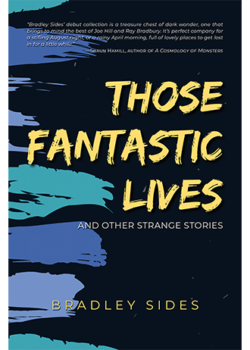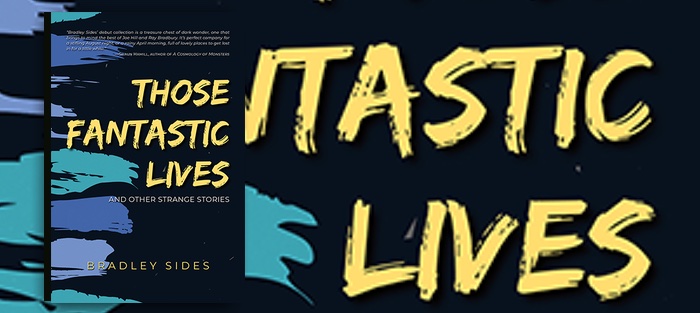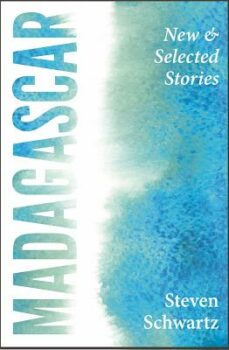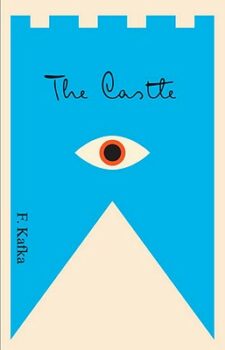 Bradley Sides’ debut short story collection, Those Fantastic Lives (City of Light Publishing), takes an enchanting and dark spin on the supernatural, using the strange and the alien to explore masculinity, notions of home, the way different generations navigate the world, and how we’re affected by fear itself.
Bradley Sides’ debut short story collection, Those Fantastic Lives (City of Light Publishing), takes an enchanting and dark spin on the supernatural, using the strange and the alien to explore masculinity, notions of home, the way different generations navigate the world, and how we’re affected by fear itself.
Filled with tales of apocalyptic worlds plagued by aliens, creepy dolls, psychics, and monsters, Those Fantastic Lives acts as a light that, when turned on, reveals there are no monsters underneath the bed; only monsters cultivated from within. And through all the supernatural forces and entities in the piece, the most terrifying of creatures is that of a frightened human.
For example, in the story “Back in Crowville,” the locals discover their town has new residents—ghosts. And though the ghosts keep to themselves and cause no harm, the older generation—mostly the fathers—believes the ghosts endanger their community.
As the night faded, Dad’s energy did not. He went on and on about the ghosts and swore he wouldn’t turn around. He wouldn’t allow us to live in a place like Crowville anymore. It wasn’t safe. It wasn’t a good place to raise a family.
As the story continues, a divide occurs between older and younger generations: the older generation wants to frighten the ghosts away, but the younger generation is unbothered. Eventually, fear drives the older generation to leave town. And with their departure, so goes the fear. “Fear did leave,” the narrator recounts. “It left when the last car turned right on the open highway out of Crowville. At that, I fell asleep smiling.”
Of course, sometimes the fear in these stories arises not from the supernatural, but from differing understandings of societal norms and expectations. In “The Dolls for The End of The World,” a young boy deviates from preconceived gender roles by playing with dolls—one in particular that he can communicate with. The boy’s father views the dynamic as weakness, defiance towards being manly, and abuses his son.
His father didn’t hesitate. His hand flew as if he were a fox and his son’s face the prey. Hungry. Vicious.“Ain’t no story gonna make you a man.”
Patrick pulled his hand up and felt the warm sting of his cheeks. The mark would fade just as the others had.
Later, when fire falls from the sky, as predicted by the boy’s doll, the boy brings his dolls to those suffering and gifts them with a companion, a friendship. And when the boy brings his father a doll, the father is left with the realization that his fears—his steadfast, limiting beliefs of masculinity and strength—have resulted in him mistreating the greatest gift he could have asked for: the love of a son who’s evolved masculinity transcends gender identity.
What makes these stories most successful, however, are the complex ways in which fear and parental love intersect. For fear is not always about limitations, but can also arise from a desire to protect. This dilemma is shown in “The Creator,” in which a man creates a “paper son” that he hopes to shield from the outside world. And yet, of course, it is almost impossible to protect those we love. Sides writes:
The rain catches the man by surprise when he steps outside. He runs to his truck and scrambles with his keys.
When the man reaches into his pocket, his paper son is gone—not gone gone, but gone enough. The perfect folds of the paper son are no more. His hands are no different from his head. He is translucent and ripped.
The man waves at the boy again, but his son stays limp.
It is crushing to witness the father bring his paper son into the world only for him to be taken away by something so seemingly ordinary as the rain. It is this everydayness, in fact, that makes the story tragic.
Though tragedy can also be self-inflicted in these stories. When fear overrides trust, it exposes the limits of parental love, and the desire to protect can morph into harm. In “The Galactic Healers,” a young boy struggles with a mysterious illness. Yet when a spaceship with aliens appears with a flower that can cure the boy’s sickness, his father is unwilling to see the gifts for what they are, too afraid of the other to take advantage of their cure.
“Give me the flowers,” he said. “Give me all the flowers!”
The healers looked at him, unaware of the meaning of his words.
He pointed to the flowers and then to himself. Quickly. Angrily. He repeated his motions.
The healers chirped and twirled circular movements to one another. Then, they nodded.
They bent toward the floor and plucked all of the blooming flowers on their spaceship and handed them to my father.
He stuffed them into his pockets so tightly that some of the stems busted open. The medicine ran down his legs and onto the floor. Wasted forever. Gone.
Whether discovering that we are not acting from a place of logic, or even love, but from one of fear, Sides guides readers through the dark so that when the light is finally turned on, it leaves us viewing our actions, our behavior, our thoughts—all of which are so often driven by the unknown—more clearly.
And perhaps this is what is so successful about Those Fantastic Lives: the collection goes beyond familiar narratives of the supernatural by asking why we are afraid of monsters and ghosts, and the things we cannot explain, illuminating the depths we as humans go to protect ourselves from what we are unable to comprehend.
In truth, the quintessential spirit of what Sides’ collection depicts are fears of what exists outside the binary: outside social mediated norms and expressions; beyond our multifarious affections to trust that of which we know. At times these stories are frightening, other times heart-wrenching. And yet even the apocalyptic ones are eerily similar to our own world: ridden with dramatic unattended consequences, all of which showcase our fantastic lives.






